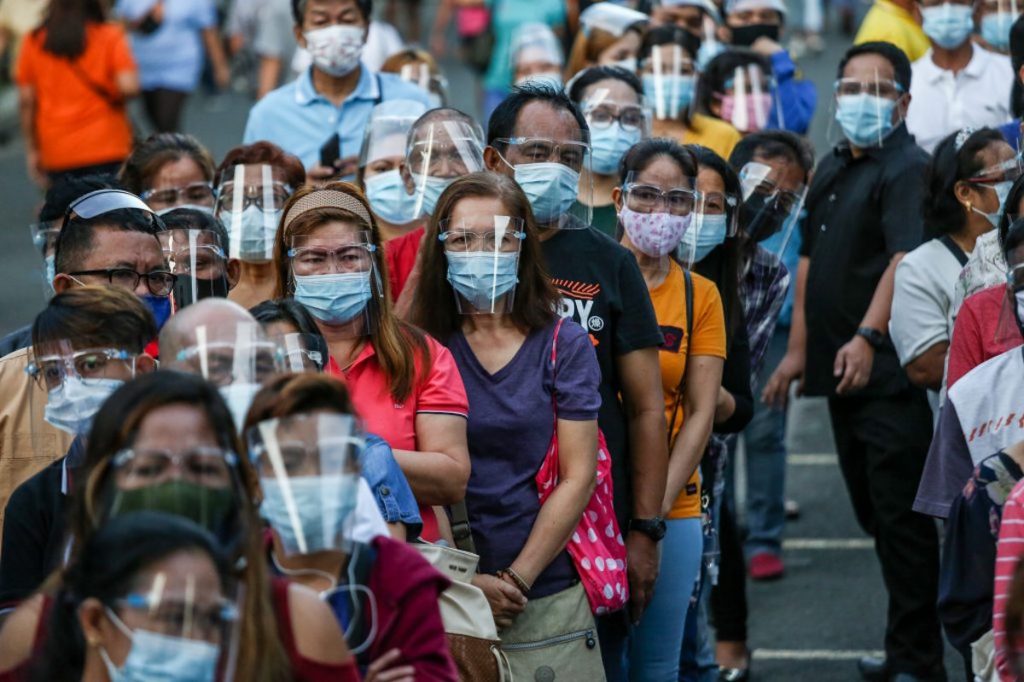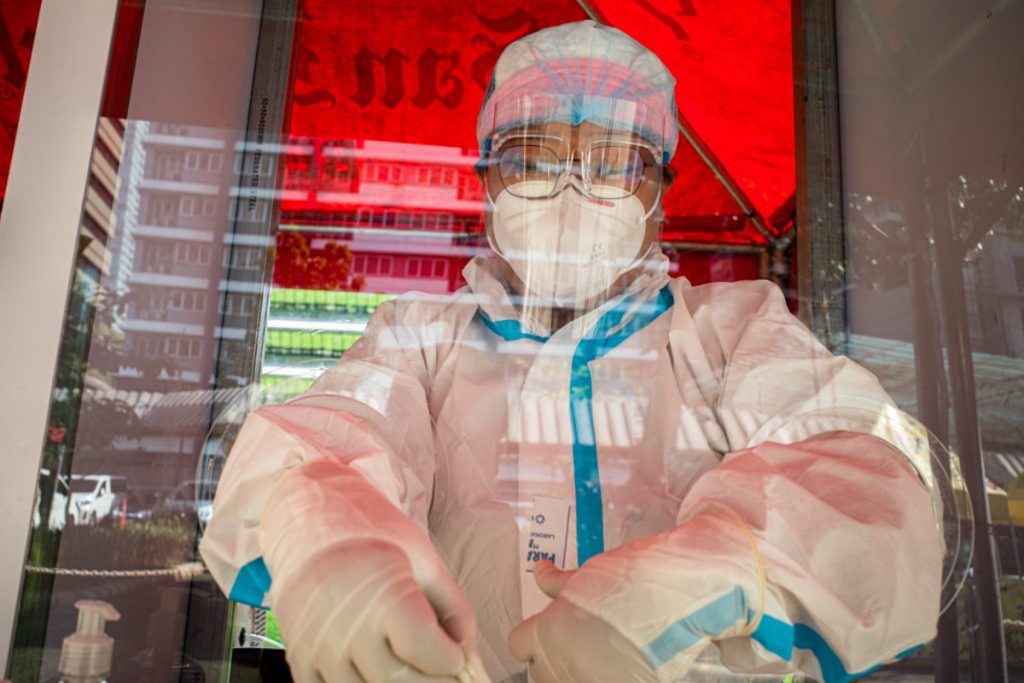Archbishop Jose Palma of Cebu in the Philippines has tested positive for COVID-19 amid reports on the detection of a virus mutation “of concern” in the region.
“The Archdiocese of Cebu wishes to inform the faithful that Archbishop Jose S. Palma tested positive for COVID last night,” said Monsignor Joseph Tan, spokesperson of the archdiocese.
The priest said the archbishop is in a “stable condition” and is under medical care at the Perpetual Succour Hospital in Cebu.
“The people who have been in close contact with the archbishop have also been informed about the matter,” said Father Tan.
The priest asked the faithful to pray for Archbishop Palma’s “steady and speedy recovery.”
Other Filipino Catholic bishops who have tested positive for COVID-19 but have since recovered are Bishop Broderick Pabillo of Manila, retired Bishop Deogracias Iniguez of Kalookan, and Cardinal Luis Antonio Tagle.
Archbishop Palma, a native of Dingle, Iloilo, was appointed by Pope Benedict XVI to lead the Archdiocese of Cebu in January 2011.
The 70-year-old prelate replaced Cardinal Ricardo Vidal, who retired after serving the archdiocese for 29 years.
Archbishop Palma became the president of the Catholic Bishops’ Conference of the Philippines before he chose to forego reelection to focus on the preparations for the International Eucharistic Congress in 2016.
He is on top of preparations for the 500th anniversary of the arrival of Christianity in the country this year.

‘Variant of concern’
The Philippine Genome Center announced on Feb. 18 that it has detected a COVID-19 “variant of concern” in Cebu City.
Dr Mary Jean Loreche, a Department of Health spokesperson in the region, said in a press conference that the center detected two “mutations” in samples in Cebu City, identified as E484K and N501Y.
“Out of 50 samples total, there were 37 samples that had the mutations of concern,” Loreche said.
She said 58 percent — or 29 out of 50 — of the samples had “co-occurrence” where both of the mutations were present.
“Variant of concern” means that researchers have not yet identified the exact origin of the variant or its difference in terms of transmission and intensity compared to foreign variants.
COVID-19 infections in the country breached the 555,000 mark on Feb. 18, with 1,744 new cases reported by the Department of Health.
The cumulative total of COVID-19 cases in the Southeast Asian nation reached 555,163, of which, 31,115 or 5.6 percent are active infections.
The additional cases do not include data from six laboratories that failed to submit their results on time.
It is the sixth straight day that additional COVID-19 cases counted fewer than 2,000.
The daily tally also included 96 additional COVID-related deaths, or a total of 11,673 fatalities. This likely includes what the Department of Health reported as 68 recovered cases that turned out to be deaths after final validation.
The newly reported fatalities are the highest in a single day since Feb. 10, when 144 deaths were announced.
Meanwhile, total recoveries went up by 412 to 512,375.
Of the active cases, 85.6 percent have mild symptoms, 8.6 percent are asymptomatic, 2.5 percent are in critical condition, 2.5 percent have severe symptoms, and 0.78 percent have moderate symptoms.

WHO warning
The World Health Organization (WHO) this week warned the Philippines that it may observe an upsurge of COVID-19 cases if the government eases quarantine restrictions.
Rabindra Abeyasinghe, WHO country representative, said the government must still consider the fact that COVID-19 cases in the country, including Metro Manila, are still “plateauing.”
“It hasn’t flattened yet and so we still need to be conscious about the fact that there is a relatively high level of transmission there in the community and that situation is also complicated by the presence of new variants,” he said in a public briefing.
Abeyasinghe warned that if the country goes for large-scale relaxation of measures, “we may witness a situation where there’ll be an upsurge of cases and the overwhelming of the health [care system].”
The WHO official was reacting to the National Economic Development Authority’s proposal to place the country under modified general community quarantine, a less restrictive quarantine classification, and the reopening of cinemas and other establishments by March.
The Philippines has so far been able to contain the spread of COVID-19 and prevent the health system from being overwhelmed because of restrictions, he added.






